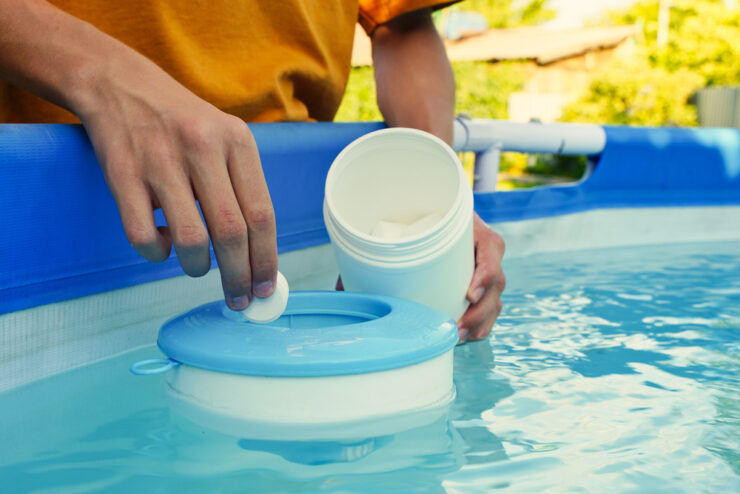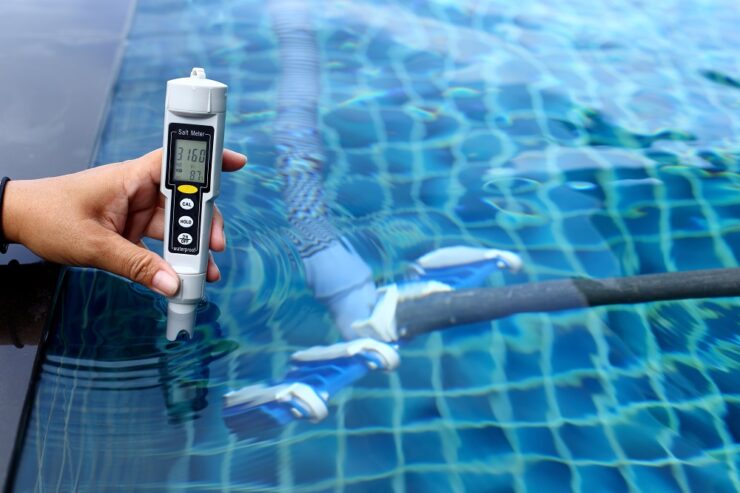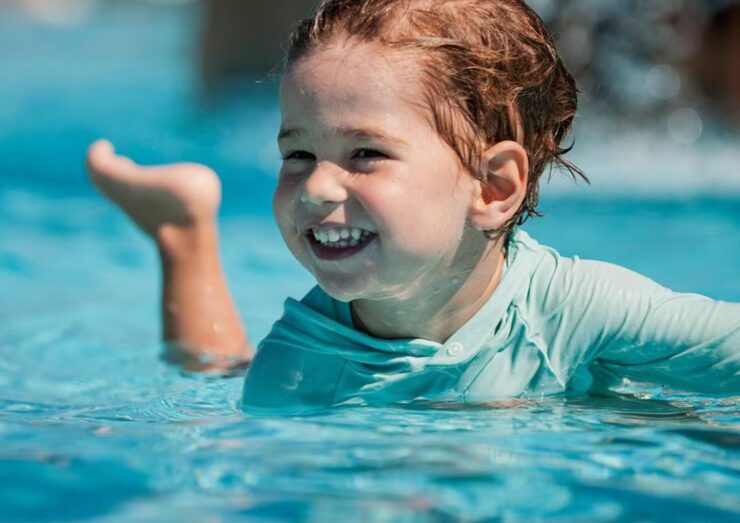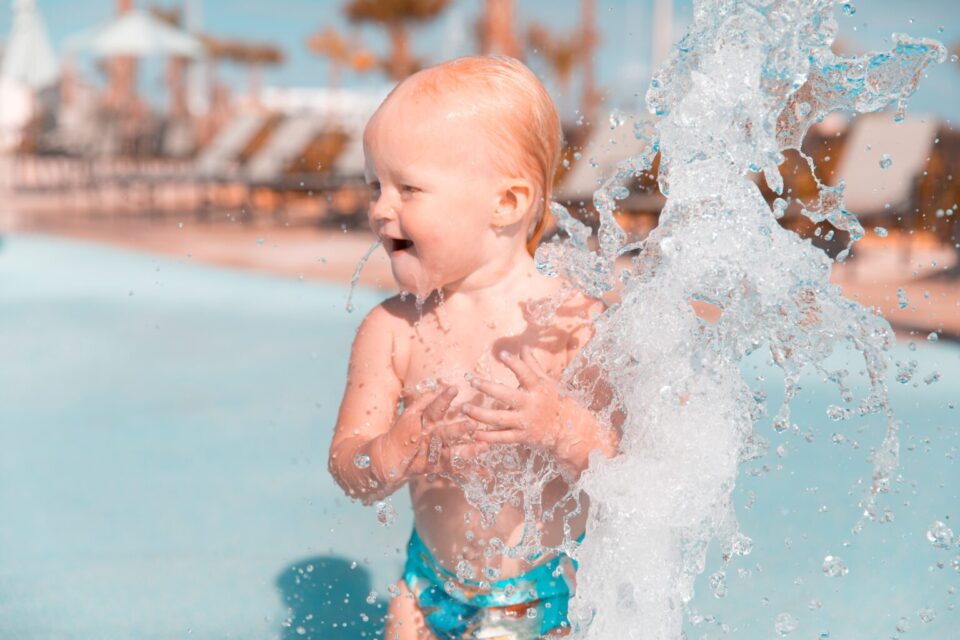Swimming is a fun and healthy activity for people of all ages, including babies. However, taking a baby in a pool requires extra precautions to ensure their safety and well-being. In this article, we will discuss some of the risks associated with taking a baby in a pool and how to mitigate them.
Pool Chemicals:
One of the major risks of taking a baby in a pool is exposure to pool chemicals, such as chlorine. While chlorine is essential for maintaining a clean and hygienic pool environment, excessive exposure to it can cause skin irritation, respiratory problems, and even asthma. Therefore, it is important to ensure that the pool’s chemical levels are within the safe range and that the baby is not exposed to them for prolonged periods.

Does chlorine hurt a baby’s skin?
Chlorine can cause skin irritation and dryness, especially in babies with sensitive skin. To protect your baby’s skin, you can apply a water-resistant and hypoallergenic sunscreen before taking them in the pool. Additionally, you can rinse your baby with fresh water after swimming to remove any residual chlorine from their skin.
Pool Temperature:
Another risk of taking a baby in a pool is exposure to cold water. Babies are more susceptible to hypothermia, which is a dangerous drop in body temperature. Therefore, it is important to ensure that the pool water is warm enough for the baby. The ideal temperature for a baby’s pool is around 84°F (29°C).

Sun Safety:
Lastly, sun safety is an important consideration when taking a baby to a pool. Babies have delicate skin that is more prone to sunburn and long-term skin damage. To protect your baby from the sun, you can dress them in a long-sleeved rash guard or swim shirt, a wide-brimmed hat, and sunglasses. Additionally, you can apply a baby-safe sunscreen with at least SPF 30 before taking them in the pool.
Babies can drown in very small amounts of water
Babies can drown in very small amounts of water. A baby’s lungs are not fully developed until she is about 2 years old, so she does not have the ability to float or swim. A baby can drown on land or in the water, but most drownings occur in a pool where there is less supervision and it’s easier for parents to forget that their child may be near the water even if they’re not swimming at that moment.
To prevent drowning:
- Do not leave your child unattended near any body of water (including bathtubs). Even if you have another child nearby who has been taught how to swim, there are still risks involved with older siblings around because they may not always be able to keep an eye on their younger sibling(s).
- If you do decide to take your baby into a swimming pool with you, make sure that everyone else knows this beforehand so they don’t accidentally let go while holding onto him/her!

Swimming is fun, but keeping your baby safe is more important than having fun
Whether you’re at a pool or in the ocean, it’s easy to forget that pools can be dangerous. Babies can drown in very small amounts of water. If you’re outside and want to go swimming with your baby, make sure there are lifeguards on duty and they know how long it’s been since you last breastfed or changed your baby’s diaper–and be aware of how much time has passed since then!
Conclusion
In conclusion, taking a baby in a pool can be a fun and enjoyable experience, but it requires careful attention to safety and hygiene. By taking the necessary precautions and ensuring that how to protect your skin from chlorine and the pool water is clean, warm, and free of harmful chemicals, you can provide a safe and healthy environment for your baby to swim and play.



